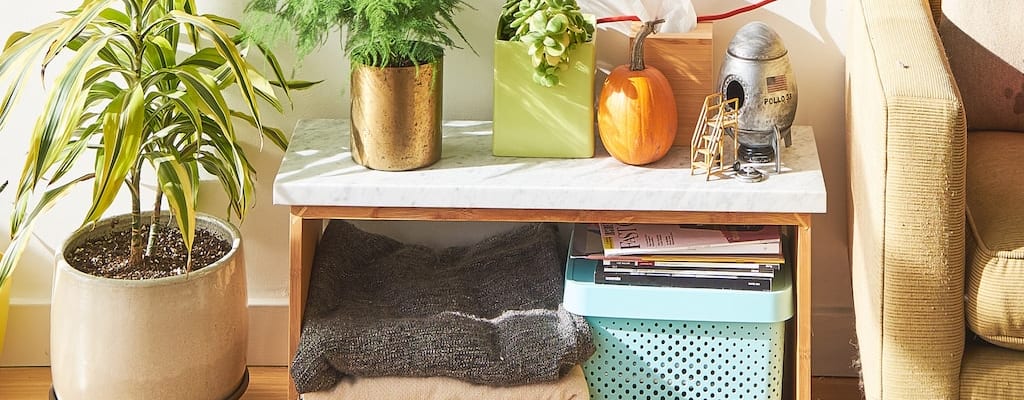make oneself at home: Idiom Meaning and Origin
What does ‘make oneself at home’ mean?
The idiom "make oneself at home" means to make oneself feel comfortable and relaxed in someone else's house or any new environment.

Idiom Explorer
The idiom "settle in" means to become comfortable or familiar with a new environment or situation. It implies the process of adapting and feeling at ease in a new place or job.
The idiom "put one's feet up" means to relax or take a break from work or daily responsibilities. It refers to the action of resting one's feet on a surface, typically a chair or ottoman, to unwind and unwind.
The idiom "out of one's element" means to be in a situation or place where one feels uncomfortable or is not able to perform as well as usual.
The idiom "out of house and home" means to be completely destitute, having lost everything one possesses, especially due to financial hardships or being forced to leave one's home.
The idiom "on one's own" means to do something independently, without help or support from others.
The idiom "on one's lonesome" means to be alone or without any companions. It emphasizes the feeling of solitude or isolation that one may experience.
The idiom "move out" means to leave a particular place or to vacate one's current residence. It implies a change in one's living situation or relocation to a new place.
When someone "moves house," it means they are changing their place of living, typically by relocating to a new residence. This idiom emphasizes the act of physically moving or transferring one's belongings from one house to another.
The idiom "move furniture" means to rearrange or change the layout of a room or space.
The idiom "mind one's own business" means to not interfere in other people's affairs or to be nosy. It emphasizes the importance of focusing on one's own matters and not getting involved in unnecessary or intrusive activities related to others.
Finding Comfort
The idiom "make oneself at home" is commonly used when welcoming someone into a space or environment. It encourages them to feel comfortable and relaxed as if they were in their own home. This phrase is often spoken by hosts or residents when inviting guests to make themselves comfortable and freely engage with the surroundings.
One possible origin of this idiomatic expression can be traced back to the ancient customs of hospitality. In many cultures, it is customary to make guests feel at ease and welcomed by offering them the same comforts and treatment as if they were in their own homes. This practice is believed to have contributed to the origin of the idiom "make oneself at home" as a way to express this sentiment.
The idiom is composed of three key elements: the verb "make," the reflexive pronoun "oneself," and the phrase "at home." Together, these components form a figurative expression that encourages individuals to establish a personal sense of comfort and familiarity in a new environment or situation.
The idiomatic usage of "make oneself at home" can be found in a variety of contexts. It is used during social gatherings, visits to friends or family, and in instructions provided by hosts to their guests. The phrase implies informality and the expectation that individuals will feel free to relax and behave as they would in their own homes. It is also seen as a gesture of kindness and hospitality, inviting individuals to fully engage with their surroundings and make themselves comfortable.
The interpretation of the idiom may vary depending on cultural nuances and individual experiences. In some regions or social settings, the phrase "make oneself at home" may hold different connotations or expectations. Additionally, the idiom can sometimes be used ironically to mock someone who is behaving too casually or intrusively in a given space.
at home
The related idiom "at home" refers to the state of being comfortable and familiar in a particular place. When someone feels "at home," they feel at ease and content in their surroundings. This feeling can be associated with a sense of belonging, relaxation, and familiarity. When individuals are encouraged to "make themselves at home," they are being invited to establish this feeling of comfort in a new environment.
Another related idiom is "home away from home." This phrase is often used to describe a place or environment that provides the same comfort and familiarity as one's own home. It can refer to a hotel, a friend's house, or any other space that offers a sense of ease, relaxation, and belonging. When individuals are encouraged to "make themselves at home," they are essentially being invited to create a "home away from home" experience by embracing the comfort and familiarity of their surroundings.
Lastly, the idiom "home sweet home" is used to express the joy and contentment one feels when returning to their own home. It signifies a strong emotional connection to one's living space and the feeling of comfort and security it provides. When individuals are encouraged to "make themselves at home," they are being invited to recreate that sense of joy and contentment in a new environment, making it their own "home sweet home."
The idiom "make oneself at home" is a widely recognized expression that encourages individuals to feel comfortable and relaxed in a new environment. It originated from the customs of hospitality and the act of creating a welcoming atmosphere for guests. The phrase conveys a sense of familiarity and informality, inviting individuals to fully engage with their surroundings. While it holds a generally understood meaning, there may be cultural and contextual variations that influence its interpretation.
Example usage
Examples of how the idiom make oneself at home can be used in a sentence:
- When I arrived at my friend's house, she told me to make myself at home by grabbing a drink from the fridge.
- The hotel staff was incredibly welcoming and made us feel like we could make ourselves at home during our stay.
- After a long day of traveling, I walked into my own apartment and immediately kicked off my shoes, ready to make myself at home.
More "Familiarity" idioms



